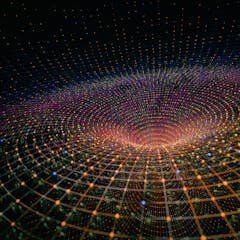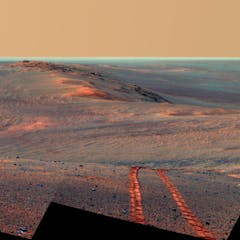
Museums Victoria Research Institute

Museums Victoria Research Institute is responsible for the state’s scientific and cultural collections, providing public access through three museums.
We also oversee a wide range of research programs, the continued development of the state’s collections, and run major education and research based websites.
We are the largest public museums organisation in Australia.
Links
Displaying 1 - 20 of 137 articles

Some of Australia’s Federation-era dragons are among the oldest surviving imperial dragons in the world.

Um fóssil recém-descrito do sul da Austrália está causando impacto em nossa compreensão de onde e quando as baleias desenvolveram tamanhos corporais gigantescos.

A newly described fossil from South Australia is making waves in our understanding of where and when whales evolved titanic body sizes.

The Geminids meteor shower this year promises to be extra special as the peak of the falls at New Moon.

Only a tiny sliver of the Australian continent will witness the totality this time around. But there are five more total eclipses coming over the next 15 years.

Tellurium is a critical mineral for renewable energy – but little is known about its environmental effects and how it circulates in the wild.

Earth is moving through a bit of space where three streams of debris intersect with our orbit. These streams will give birth to the stars of this weekend’s show.

Could the Tau Herculid meteor shower put on a spectacular show next week? Only time will tell.

Each year, the Earth runs through a broad river of dust surrounding Comet Halley – giving birth to the spectacular Eta Aquariid meteor shower.

Penguins will have the best seat in the house as a total solar eclipse passes over Antarctica on December 4. Australia and New Zealand will experience a minor partial eclipse, but not a noticeable one.

A partial lunar eclipse during moonrise will let viewers in most Australian capitals see the Moon partly shrouded in Earth’s shadow, while the “Moon illusion” makes it look larger than life.

The universe has a finite age — 13.8 billion years to be exact. So if it had a beginning, why is it so difficult to say for sure whether it will have an end?

Sonar scans of the Indian Ocean floor south of Christmas Island have revealed a Tolkeinesque landscape of towering peaks, ashen uplands and ominous volcanic craters.

Mars, Venus and the crescent Moon will all come together in the sky just after sunset on Tuesday.

Ophiojura, discovered living on a seamount deep in the Pacific Ocean, is the last known survivor of a unique group of animals that diverged from its closest relatives way back in the Jurassic period.

Ancient climate change doomed the monk seals that lived in Australian waters millions of years ago.

After more than 300 years of effort, scientists have documented fewer than one-third of Australia’s species. The remaining 70% are unknown, and essentially invisible, to science.

There are too many little-understood species for scientists to study them all. A new approach helps decide which ones to tackle first.

This Wednesday night, everywhere in Australia will have a box seat for a spectacular total eclipse of the Moon.

Of the three probes to reach Mars this month, only two will land. But they will add to our growing knowledge of the red planet, and the search for evidence of life.
